- Primary Hub
- Art & Design
- Design & Technology
- Health & Wellbeing
- Secondary Hub
- Citizenship
- Primary CPD
- Secondary CPD
- Book Awards
- All Products
- Primary Products
- Secondary Products
- School Trips
- Trip Directory
- Trips by Subject
- Trips by Type
- Trips by Region
- Submit a Trip Venue

Trending stories

Top results

Royal Botanic Gardens, Kew
- EYFS – Understanding the World , English , Geography , Maths , STEM , Science +2 more
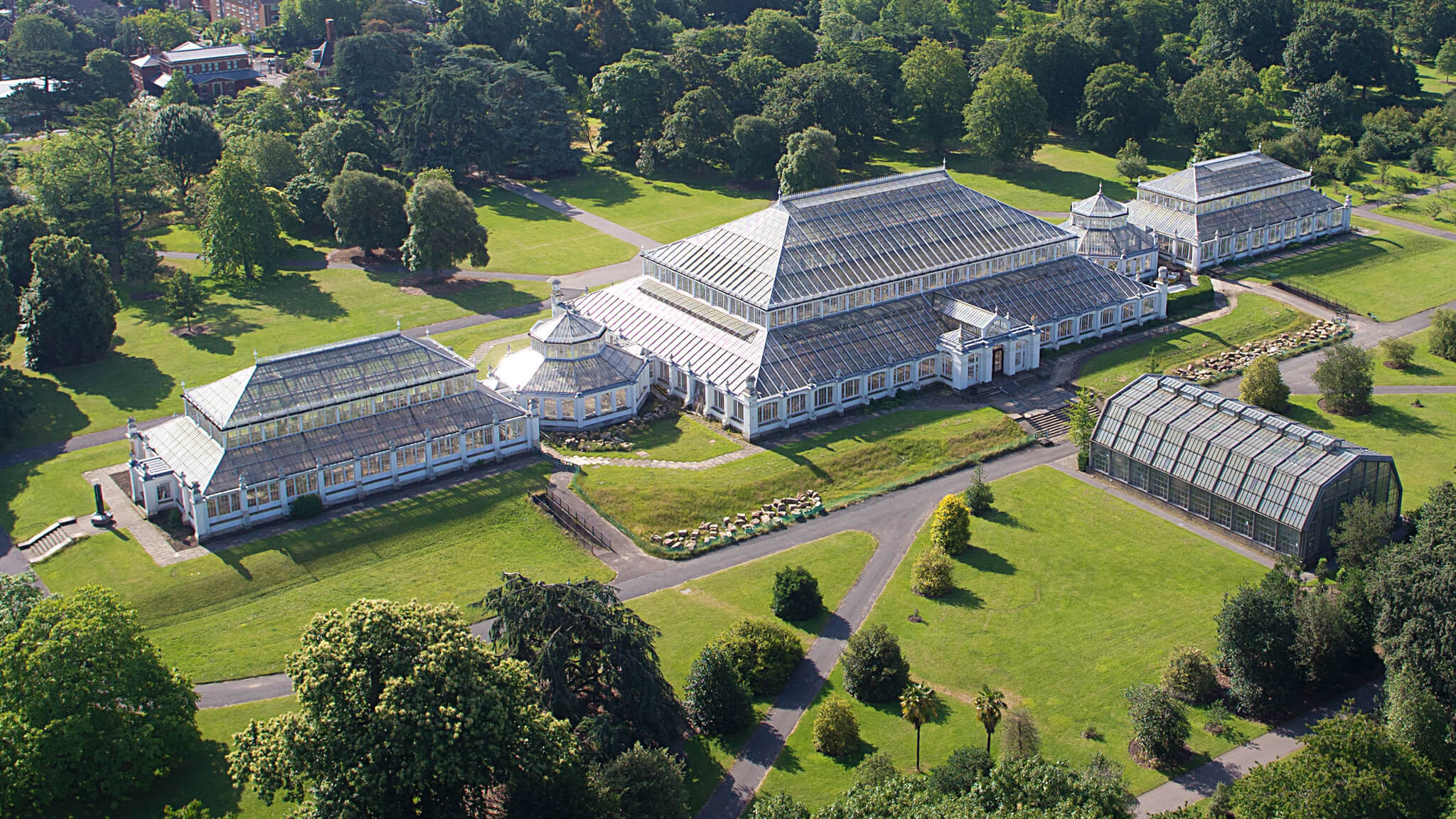
Photos of Royal Botanic Gardens, Kew
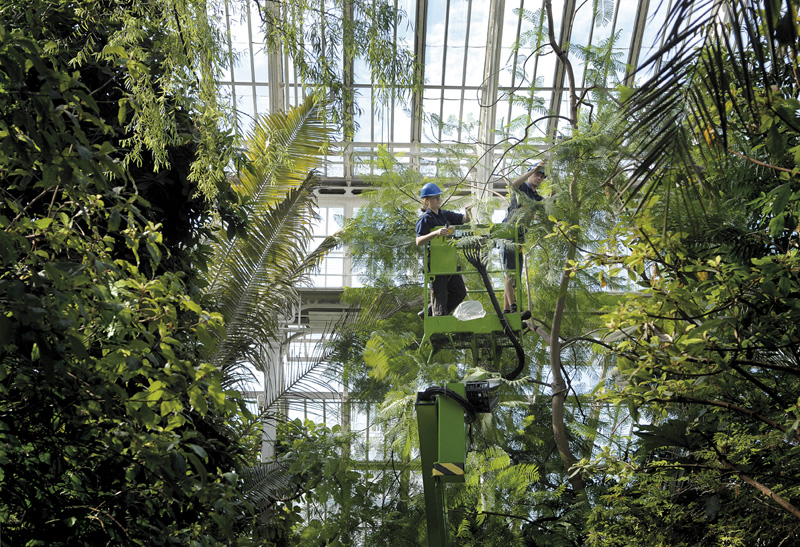
What will students see and do?
Kew Gardens is London’s largest UNESCO World Heritage Site, and its collection of plants is the most diverse anywhere in the world.
With its world-famous research centre on-site too, it’s the perfect place for school science trips, and ideal for helping students understand the natural world.
Visitors to Kew Gardens can expect to see plants from across the planet and will have the unique opportunity to experience ten of the world’s climatic zones.
There are different greenhouses, each with the right climate for their diverse flora to thrive.
Other exciting aspects about a visit to the garden include an 18-metre-high treetop walk, from which students will be rewarded with a spectacular view of the gardens below.
These are just some of the highlights on offer. You can book a self-led visit or opt for an education session with an expert, who will guide students through the wonders of the science behind Kew with a focus on outdoor learning.
How does the trip link to the curriculum?
Book an education session at Kew Gardens and you’ll get an expert guide who will tailor the workshop to your learning objectives. All sessions link directly to the curriculum, as students get a deep insight into the scientific work that takes place at Kew. Maths, English, geography and art are also all covered.
The teachers who lead the education sessions are all highly experienced and focus on enquiry-based learning. Students are encouraged to develop a sense of curiosity for the natural world, and to actively participate in sessions.
The sessions have a different focus depending on the Key Stage of your group.
EYFS children use hands-on play to explore the magical world of plants. They learn how they grow and why each part of the plant is essential. You can also choose a ‘story explorers’ session for younger children.
Key Stage 1 children explore habitats and minibeasts, and play plant hunters and plant scientists. They also learn about the effect of the seasons and the weather on the plant life at Kew. Another great session for KS1 is ‘Maths in the Great Outdoors’.
Key Stage 2 sessions inspire pupils to become more curious about plants, the world and its people. They learn about evolution and adaptation as well as art in nature, and can also investigate historical botanists and naturalists.
Key Stage 3 sessions focus on science and geography. Students learn all about geosystems, plant structures, adaptations, photosynthesis, microclimates and biodiversity.
Key Stage 4 sessions are mapped to the GCSE biology curriculum. Students learn about plant pathogens, pests and diseases, and plant reproduction, plus topics such as food security and natural resources.
Key Stage 5 sessions align with A-level curriculums, focusing on conservation and biodiversity, energy and recycling in ecosystems, and water and carbon cycles.
Subjects covered
Teaching resources provided.
When you book an education session for your students at Kew Gardens, you will be given access to free teaching resources. These include detailed information about what the session you have chosen entails and the exact way it maps to the curriculum.
Students have an assessment after the session: peer discussion and open-ended questioning are used to assess what students have learnt.
If you would like more information about the resources available, contact the team at Kew.
Minimum and maximum group size
The maximum number of pupils that can visit Kew at once is 200, while the upper limit for a group session is 15. If you have a large group, it will be broken down into smaller groups for the education sessions.
Details of risk assessment
It is the responsibility of school leaders to complete a risk assessment prior to visiting, as the needs of each group are different. There is an example risk assessment available on the Kew Gardens website.
You will also need to brief your students before the trip not to partake in risky activities such as climbing trees or going too close to lakes and ponds.
Don't miss our downloadable A-Z guide on completing a risk assessment

Facilities on-site
There are toilets, first aid facilities, food and water available on-site.
Opening times
Kew Gardens opens daily at 10am. The recommendation is that you spend at least five hours there. Session timings will be fixed.
The gardens close at different times throughout the year. There are also times that the gardens close for works.
For up-to-date opening times, check the website.
The cost of visiting depends on the size of your group. A trip for a group of up to 35 pupils costs £65. An education session is £35 for a 45-minute session or £70 for 90 minutes.
You can access the booking form to arrange your session online.
Travel arrangements
You can reach Kew Gardens by road – it’s 20 minutes outside of Central London.
Coach drop-offs are at the Elizabeth Gate on Kew Green. When you book, you will receive a drop-off and pick-up time for your coach or minibus.
Coach parking costs £25 per day. You can pre-book coach parking by calling 020 8940 0397.
Kew Green, Richmond, Surrey TW9 3AE

Book your school trip to Royal Botanic Gardens, Kew
For information on booking your school trip to this venue, click below.
Teachers also looked at...
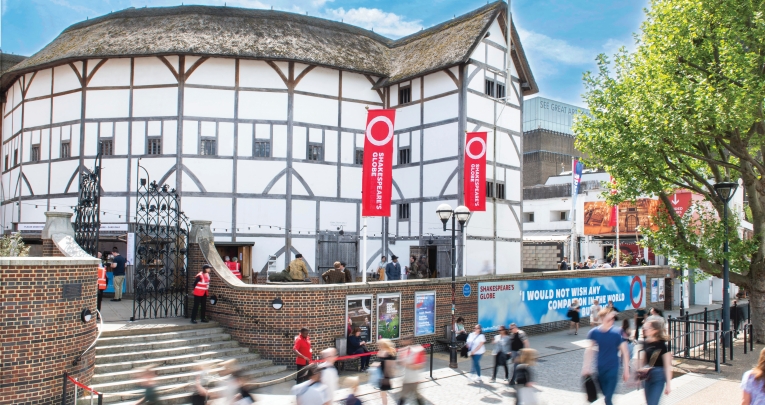
Explore by Region
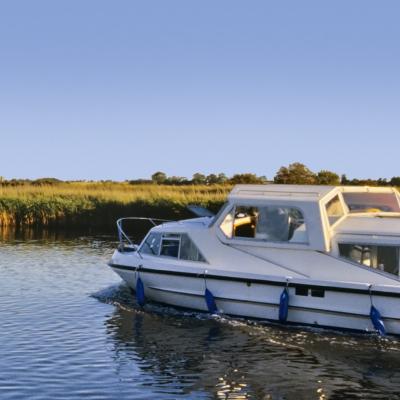
Explore by Type
Why join teachwire.
Get what you need to become a better teacher with unlimited access to exclusive free classroom resources and expert CPD downloads.
Exclusive classroom resource downloads
Free worksheets and lesson plans
CPD downloads, written by experts
Resource packs to supercharge your planning
Special web-only magazine editions
Educational podcasts & resources
Access to free literacy webinars
Newsletters and offers
Create free account
By signing up you agree to our terms and conditions and privacy policy .
Already have an account? Log in here
Thanks, you're almost there
To help us show you teaching resources, downloads and more you’ll love, complete your profile below.
Welcome to Teachwire!
Set up your account.
Lorem ipsum dolor sit amet consectetur adipisicing elit. Commodi nulla quos inventore beatae tenetur.
I would like to receive regular updates from Teachwire with free lesson plans, great new teaching ideas, offers and more. (You can unsubscribe at any time.)
Log in to Teachwire
Not registered with Teachwire? Sign up for free
Reset Password
Remembered your password? Login here


Attention! Your ePaper is waiting for publication!
By publishing your document, the content will be optimally indexed by Google via AI and sorted into the right category for over 500 million ePaper readers on YUMPU.
This will ensure high visibility and many readers!

Your ePaper is now published and live on YUMPU!
You can find your publication here:
Share your interactive ePaper on all platforms and on your website with our embed function

Generic risk assessment - Royal Botanic Gardens, Kew
- supervision
- www.kew.org
Create successful ePaper yourself
Turn your PDF publications into a flip-book with our unique Google optimized e-Paper software.
HEALTH AND SAFETY RISK ASSESSMENT<br />
Risk/Hazard<br />
Existing Control Measures<br />
Equipment/Play Equipment All equipment is regularly checked to<br />
ensure it remains “fit for purpose” and<br />
results of inspections are recorded in an<br />
equipment log.<br />
All play equipment within dedicated play<br />
areas i.e. Climbers and Creepers indoor<br />
play equipment (suitable for children aged<br />
3-9 years) conforms to current British and<br />
European Standards and is subject to<br />
regular inspection.<br />
Treehouse towers – external play area<br />
(suitable for children under the age of 12)<br />
conforms to current British and European<br />
Standards and is subject to regular<br />
inspection.<br />
Supervision of visiting school parties<br />
provided by school leaders at all times.<br />
Note:<br />
RBG <strong>Kew</strong> do not provide supervisory staff for<br />
school parties in play areas.<br />
Risk Level *<br />
(tick one)<br />
High Med Low<br />
Further Action needed to reduce <strong>risk</strong>s<br />
(provide timescales and initials of person responsible)<br />
Low Leaders of school parties to provide supervision<br />
for all persons within their groups whilst on the<br />
play equipment.<br />
Leaders to be aware of other users in the play<br />
areas and note age limits.<br />
* See attached sheet for definition of Risk Level<br />
I:\Client: RGB-<strong>Kew</strong>/JHS1633/08 Page 6 of 10 Version No. 2 June 2009
- More documents
- Recommendations
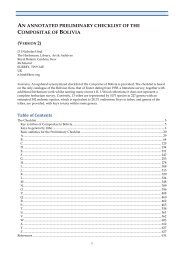
HEALTH AND SAFETY RISK ASSESSMENT Risk/Hazard Existing Control Measures Equipment/Play Equipment All equipment is regularly checked to ensure it remains “fit for purpose” and results of inspections are recorded in an equipment log. All play equipment within dedicated play areas i.e. Climbers and Creepers indoor play equipment (suitable for children aged 3-9 years) conforms to current British and European Standards and is subject to regular inspection. Treehouse towers – external play area (suitable for children under the age of 12) conforms to current British and European Standards and is subject to regular inspection. Supervision of visiting school parties provided by school leaders at all times. Note: RBG <strong>Kew</strong> do not provide supervisory staff for school parties in play areas. Risk Level * (tick one) High Med Low Further Action needed to reduce <strong>risk</strong>s (provide timescales and initials of person responsible) Low Leaders of school parties to provide supervision for all persons within their groups whilst on the play equipment. Leaders to be aware of other users in the play areas and note age limits. * See attached sheet for definition of Risk Level I:\Client: RGB-<strong>Kew</strong>/JHS1633/08 Page 6 of 10 Version No. 2 June 2009
HEALTH AND SAFETY RISK ASSESSMENT Risk/Hazard Harmful/poisonous plants/fungi (mushrooms & toadstools) Existing Control Measures Group leaders of school parties must advise all persons within their supervision that they should not pick or eat any parts of any plants in the <strong>Gardens</strong>. If prepared plants are to be touched or consumed for educational reasons, the group leaders must check persons within their supervision for any known allergic reactions to plants prior to visiting the <strong>Gardens</strong>. Plants with sharp spines or thorns Many plants within the cactus areas of some glasshouses have sharp spines/thorns – some are placed behind protective screens and warning notices displayed “do not touch”. Note: Plants with sharp spines/thorns can be found throughout the <strong>Gardens</strong>. Risk Level * (tick one) High Med Low Low Further Action needed to reduce <strong>risk</strong>s (provide timescales and initials of person responsible) Prior to visiting the <strong>Gardens</strong>, leaders of school parties to: Inform persons within their supervision they should not pick or eat any parts of any plants in the <strong>Gardens</strong>. Check persons within their supervision for any known allergic reactions to plants. Low Prior to visiting the <strong>Gardens</strong>, leaders of school parties should ensure persons within their supervision are made aware of the dangers of touching plants with sharp spines/thorns. * See attached sheet for definition of Risk Level I:\Client: RGB-<strong>Kew</strong>/JHS1633/08 Page 7 of 10 Version No. 2 June 2009
- Page 1 and 2: HEALTH AND SAFETY RISK ASSESSMENT R
- Page 3 and 4: HEALTH AND SAFETY RISK ASSESSMENT R
- Page 5: HEALTH AND SAFETY RISK ASSESSMENT R
- Page 9 and 10: HEALTH AND SAFETY RISK ASSESSMENT R
Extended embed settings
Inappropriate
You have already flagged this document. Thank you, for helping us keep this platform clean. The editors will have a look at it as soon as possible.
Mail this publication
Delete template.
Are you sure you want to delete your template?
DOWNLOAD ePAPER
This ePaper is currently not available for download. You can find similar magazines on this topic below under ‘Recommendations’.
Save as template?
- Help & Support
- tuxbrain.com
- ooomacros.org
- nubuntu.org
- Terms of service
- Privacy policy
- Cookie policy
- Cookie settings
Choose your language
Main languages
Further languages
- Bahasa Indonesia
Performing this action will revert the following features to their default settings:
Hooray! Your file is uploaded and ready to be published.
Saved successfully!
Ooh no, something went wrong!

- Visitor Info
- Day Tickets
- Gardens Map
- Gardens Shop
- Food & Drink
- Photoshoots
- Our Collection
- Our Highlights
- Conservation
- Our Trustees
Book Day Tickets
Birmingham Botanical Gardens Westbourne Road, Edgbaston, Birmingham B15 3TR

Event Guide
What's On Guide
Become A Member
Visitor announcements: please check our updated visitor announcements before your visit..

We're the green heart of Birmingham
Birmingham Botanical Gardens is a 15 acre grade II* listed landscape, with diverse micro-climates, offering a uniquely bio-diverse natural environment. It is one of the UK’s most significant historic botanic gardens which has remarkably remained intact since 1829.
Visitor Information

Explore The Gardens
With over 10,000 plants, 4 Victorian Glasshouses, Alpine Gardens, Bog and Fern Gardens, Japanese Garden, a Pinetum and an Adventure Playground — The Gardens offers something for everyone!
Admission & Opening Times: View our seasonal opening times and admissions.
We need your help!
As a charity, we receive no regular public funding. We rely solely on the generosity of public donations, grants and income we generate. Help us to make the Gardens accessible for everyone now and for future generations.
Gift A Membership
Treat yourself or your loved ones!
Make A Donation
Help us to preserve our Gardens.
Growing our Green Heritage
Find out about our 5-year capital development project to restore the Grade II historic Victorian Glasshouses. Growing Our Green Heritage is made possible with The National Lottery Heritage Fund — Thanks to National Lottery players, we are hoping to restore our historical estate for future generations to come.
Book Your Tickets

What’s On
Join us at the Gardens for a packed programme of events and activities.
Find Out More

Book your day ticket and explore one of the UK’s most significant historic Botanic Gardens.

If you enjoy visiting the gardens, why not become a member today?
We use cookies to enhance your browsing experience. By clicking "Accept All" you consent to our use of cookies.
Privacy Preference Center
Privacy preferences.
We use cookies to help you navigate efficiently and perform certain functions. You will find detailed information about all cookies under each consent category below. The cookies that are categorised as "Necessary" are stored on your browser as they are essential for enabling the basic functionalities of the site. We also use third-party cookies that help us analyse how you use this website, store your preferences, and provide the content that is relevant to you. These cookies will only be stored in your browser with your prior consent. You can choose to enable or disable some or all of these cookies but disabling some of them may affect your browsing experience.
Privacy Policy

Lesson Plans


IMAGES
COMMENTS
Date risk assessment June 2022 Review date: June 2023 completed: Task/Activity: Visiting school groups toKew Gardens - assist in writing own risk complete their own Risk Assessments prior to visiting the gardens. assessments. Schools should Department: Formal Learning/Schools Location: Royal Botanic Gardens, Kew
where possible, make use of shaded areas.Pupils and sta. are encouraged to drink plenty of water.Supervising adults should enquire of Kew st. Contact Kew Constabulary in case of emergency: (see health and safety on your visit document) Injury by an animal. Kew constabulary available to deal with incidents.
Date risk assessment completed: August 2023 Review date: July 2024 Task/Activity: Visiting school parties to Kew Gardens - to assist in writing own risk assessments. Schools should complete their own Risk Assessments prior to visiting the gardens. Department: Formal Learning/Schools Location: Royal Botanic Gardens, Kew
The Group Leader is responsible for identifying the purpose of the visit and following the School [s procedures. A risk assessment is necessary for all off-site visits. Significant risks and their control measures ... should be reflected in its visit risk assessments, and the establishment should consider carefully ... e.g. Kew Gardens) Day ...
School staff, volunteer helpers, pupils Do not use fresh animal manure in schools. Manure from plant eating animals such as school guinea pigs and rabbits can be added to homemade (school-made) garden compost then used in the garden. If animal manures are to be used to improve the soil, they
The maximum number of pupils that can visit Kew at once is 200, while the upper limit for a group session is 15. ... It is the responsibility of school leaders to complete a risk assessment prior to visiting, as the needs of each group are different. ... There is an example risk assessment available on the Kew Gardens website.
Generic risk assessment - Royal Botanic Gardens, Kew . Generic risk assessment - Royal Botanic Gardens, Kew . SHOW MORE ... safety on your visit document).<br /> Low Leaders of school parties to provide supervision<br /> for all persons within their groups.<br /> Some areas within the grounds are signed<br />
It is advisable that pupils have an up-to-date tetanus inoculation before their visit to the garden, particularly if activities with soil are to be carried out. All visitors must wash their hands before eating food. It is particularly important that any cuts are covered with a plaster to avoid any risk from Tetanus.
Generic risk assessment - Royal Botanic Gardens, Kew. Attention! Your ePaper is waiting for publication! By publishing your document, the content will be optimally indexed by Google via AI and sorted into the right category for over 500 million ePaper readers on YUMPU.
How: Tetanus, E-coli, Leptospirosis (well's disease), toxoplasmosis, toxocariasis, bioaerosols, skin irritation, soil blowing into eyes. Check the garden on opening days before volunteers arrive and remove any mess wearing gloves and disposing in outdoor waste bin. Wash hands after removal of waste.
Teachers use the playground with their pupils at their own risk and must complete their own risk assessment of this area. All pupils must be supervised at all times in this area. 3. Access to the Gardens' lunch areas. Only pre-booked schools to have access to the lunch rooms, gallery and marquees.
21/out/2019 - Health and Safety Risk Assessment conducted by KEW Gardens on their website. www.Kew.org Please click the visit link to access it fully.
Risk assessment for school visits Note: Schools are admitted on the understanding it is the responsibility of accompanying teachers and other adults to supervise the behavior of students. Moonlit Sanctuary staff are present only to lead activities and instruct as agreed. Moonlit Sanctuary reserves
The staff at the British Library were extremely helpful on each of my many visits, as were the archivists at the National Archives at Kew Gardens, and Rhodes House at Oxford. ... Ever since it was waged on a regional level in 1956, the British knew that the ride was getting rough. In a 1957 assessment of their position, Selwyn Lloyd noted ...
Water management system in place. Legionella testing carried out. L8 Risk assessments completed. wash hands before eating as outlined in 'health and safety visit on your visit' document. All school parties are given guidance on what to bring depending on the season on 'health and safety on your visit' document.
Risk assessment ref no: Visiting Schools (3-18-year-olds) Name of responsible person: Helen Gill Formal Learningand Development Manager. Date risk assessment June 2022 Review date: June 2023 Task/Activity: Visiting school groups to Kew Gardens - to assist in writing own risk assessments. Schools should complete
Map of Russia with Moscow Oblast highlighted. This is a list of rural localities in Moscow Oblast.Moscow Oblast (Russian: Моско́вская о́бласть, romanized: Moskovskaya oblast, IPA: [mɐˈskofskəjə ˈobləsʲtʲ]), or Podmoskovye [1] (Russian: Подмоско́вье, IPA: [pədmɐˈskovʲjə], literally "around/near Moscow"), is a federal subject of Russia (an oblast).
Old Believers' crucession in the village of Gora; May 2, 2008 Gora (Russian: Гора́) is a rural locality (a village) in Orekhovo-Zuyevsky District of Moscow Oblast, Russia, located some 75 kilometers (47 mi) south-east of Moscow.. Municipally, the village is a part of Davydovsky Rural Settlement (the administrative center of which is the village of Davydovo).
Visiting school groups to Kew Gardens - to assist in writing own risk assessments. Schools should complete their own Risk Assessments prior to visiting the gardens. Department: Formal Learning/Schools. Location: Royal Botanic Gardens, Kew. Persons at risk: Members of public, RBG Kew Staff, Kew Teachers, Kew Schools Volunteers, Visiting School ...
Lyakhovo. Old Believers' Chapel The communal Old Believers' Service in Lyakhovo for the Bright Easter Week. May 2, 2008. Lyakhovo (Russian: Ля́хово) is a village in Orekhovo-Zuyevsky District of Moscow Oblast, Russia, located 75 kilometers (47 mi) south-east of Moscow.Population: 71 (1997 est.). Postal code: 142641. Municipally, the village is a part of Davydovsky Rural Settlement (the ...
Date risk assessment completed: 8th March 2019 Review date: 8th March 2020 Task/Activity: Visiting school parties - to assist in writing own risk assessments. Department: Formal Learning/Schools Location: Royal Botanic Gardens, Kew Persons at risk: Members of public, RBG Kew Staff, Kew Teachers, Schools Volunteers, Visiting School Parties
Kostino ( Russian: Ко́стино) is a village in Orekhovo-Zuyevsky District of Moscow Oblast, Russia, located 75 kilometers (47 mi) south-east of Moscow near the Likhocha River . Municipally, the village is a part of Davydovsky Rural Settlement (the administrative center of which is the village of Davydovo ). Population: 185 (1997 est.). [1]